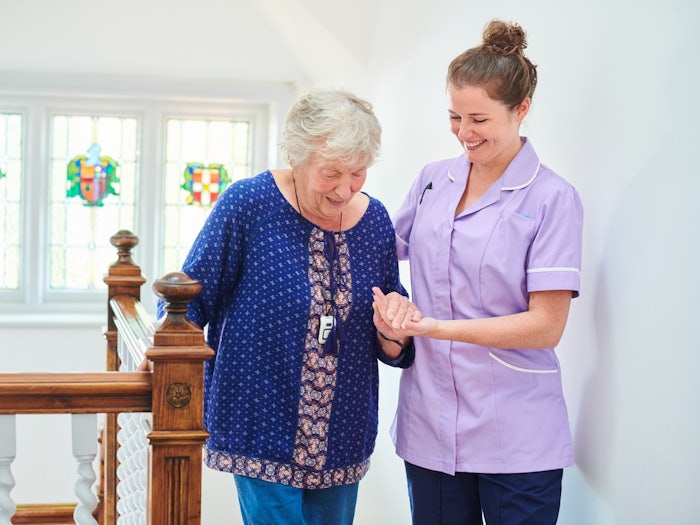The Growing Demand for In Home Treatment Givers: Factors Families Choose Expert Care Over Typical Facilities
The increasing choice for at home caregivers over conventional centers is a significant trend improving the landscape of older treatment. Families are drawn to the advantages of customized treatment that lines up with specific demands and preferences, permitting seniors to maintain a feeling of autonomy in a familiar atmosphere. This shift also highlights the psychological and financial considerations that affect decision-making. As we discover the myriad factors adding to this expanding need, the effects for both households and caretakers come to be significantly apparent. What does this mean for the future of caregiving?
Customization of Treatment
Customization of treatment in home caregiving is important for fulfilling the special needs of each person (ndis support coordinator). This strategy guarantees that care strategies are customized to the details needs of the individual, considering their clinical history, personal choices, and lifestyle. By concentrating on the person's unique scenarios, caregivers can promote a sense of self-respect and freedom, which is typically lacking in even more institutionalized setups

In addition, the capability to adapt treatment plans as demands advance is important. Home caregiving allows for continual observation and modification of treatment approaches, making sure that modifications in health status or individual preferences are promptly dealt with. This adaptability not only boosts wellness end results yet likewise enhances the lifestyle for people obtaining treatment. Inevitably, individualized care in home settings dramatically adds to the total wellness of customers, making it a vital component of modern caregiving techniques.
Comfort of Home Environment
The convenience of a home environment plays an essential role in the performance of home caregiving. Lots of people, specifically elders, experience heightened anxiety and anxiety when positioned in strange setups such as standard care centers. Home caregiving uses an acquainted atmosphere, full of individual items, cherished memories, and the sense of safety that originates from remaining in one's own room. This experience can substantially enhance psychological health, which is important for recovery and overall wellness.
Furthermore, the home atmosphere allows for a tailored strategy to caregiving, fitting individual preferences and routines. Families can create an ambience that mirrors their enjoyed one's way of living, making certain that treatment is provided in a manner that feels comfortable and all-natural. This customized setting urges much better communication and interaction between customers and caretakers, promoting count on and rapport important for effective care.
Furthermore, the convenience of home can help with social connections, as family participants and friends can check out a lot more conveniently, offering vital emotional assistance. ndis plan manager. Generally, the home environment not only helps to keep self-respect and freedom but additionally adds to a greater high quality of care, making it a preferred option for family members looking for specialist caregiving options

Boosted Freedom for Elders
Home caregiving not just gives convenience but also promotes improved freedom for senior citizens. Unlike typical facilities, at home care permits seniors to keep their daily regimens and participate in familiar tasks within their own environment. This autonomy is vital for their psychological health and home general lifestyle.

Furthermore, at home caregivers can adapt their solutions to provide especially to the unique requirements of each elderly, promoting a greater sense of control. This versatility makes certain that seniors can enjoy their hobbies, fraternize friends and family, and remain energetic in their areas, better enhancing their sense of freedom.
Ultimately, in-home caregiving not just deals with the physical requirements of elders but also empowers them to lead satisfying lives, making it a significantly popular option for families seeking the most effective care solutions for their enjoyed ones.
Cost-Effectiveness of In-Home Care
At home treatment supplies a cost-effective choice to standard nursing centers, enabling households to supply quality assistance for their liked ones without sustaining inflated costs. The costs related to assisted living home can be overwhelming, typically surpassing $100,000 each year, which can drain funds promptly. In comparison, at home care services usually charge on a per hour or per-visit basis, allowing households to customize care plans according to their budget and certain demands.
Moreover, in-home treatment eliminates added prices connected with facility living, such as room, transportation and board, and numerous administrative fees. Families can pick to engage caretakers only when necessary, possibly reducing total expenses. A considerable advantage of at home treatment is the ability to maintain personal routines, which can contribute to better emotional wellness and minimize the need for expensive medical interventions resulting from abrupt way of life adjustments.
Insurance coverage, including lasting care insurance policy, typically extends to in-home care solutions, further enhancing financial go to these guys availability (home care providers australia). On the whole, the cost-effectiveness of at home care not just relieves the financial problem on families yet also advertises an extra tailored technique to care that aligns with specific preferences and needs
Building Stronger Family Members Connections
Giving care in a familiar atmosphere promotes much deeper family members connections, allowing loved ones to actively join the caregiving process. In-home care produces chances for families to involve meaningfully with their handicapped or senior loved ones, promoting psychological bonds that can be hard to achieve in institutional settings. The visibility of expert caregivers allows relative to focus on their relational duties instead than being strained by the physical demands of treatment.
Furthermore, at home treatment allows family members to preserve their treasured routines, which can reduce sensations of anxiety and disorientation frequently connected with moving to care facilities. Shared meals, acquainted surroundings, and the convenience of home give a feeling of security that enhances health and cultivates open communication.
Families can team up with caregivers to develop individualized care strategies that show the private preferences and requirements of their enjoyed ones. This joint approach not only empowers the senior but likewise enhances the family, as members share duties and sustain each other via challenging times. Inevitably, at home treatment cultivates a nurturing environment where connections can thrive, improving the high quality of life for both caregivers and receivers.
Verdict
The boosting choice for in-home caretakers highlights a significant change in how households come close to elderly treatment. As these variables align, at home treatment emerges as a compelling choice to conventional centers, eventually advertising the health and high quality of life for seniors.
Families are attracted to the benefits of personalized care that lines up with private demands and choices, permitting elders to preserve a sense of autonomy in a familiar atmosphere.In-home care uses a cost-efficient option to typical nursing facilities, allowing households to provide high quality assistance for their enjoyed ones without incurring exorbitant expenditures. In comparison, at home treatment solutions generally charge on a per hour or per-visit basis, allowing households to customize treatment strategies according to their spending plan and certain needs.
At home care develops chances for households to engage meaningfully with their handicapped or senior relatives, advertising emotional bonds that can be challenging to achieve in institutional setups.The boosting choice for in-home caregivers highlights a substantial change in just how family members approach senior treatment.